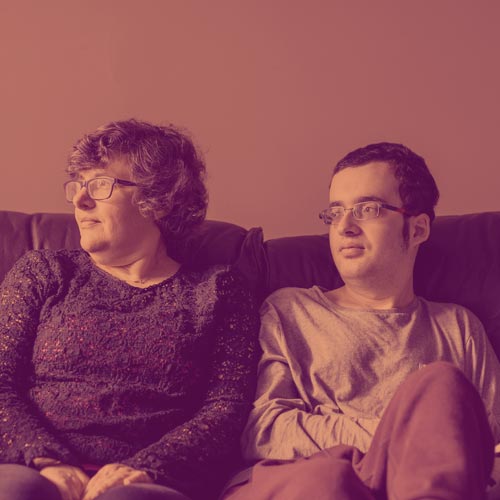Support for Adults
with NF1
Diagnosis as an adult can explain a lot, but it can also raise a lot of questions. Let’s go through the fundamentals.
Neurofibromatosis Type 1 (NF1) is a common genetic condition that causes nerve tumours to grow where they shouldn’t. The “spelling mistake” in the gene is found on chromosome 17 and occurs in 1 in 2,500 of the population. There are approximately 25,000 people in the UK diagnosed with NF1. Most people who live with NF1, can expect to live a long and vibrant life, though they may encounter more health complications.
NF1 varies widely in how it affects those who have the condition. Many people with the disorder will be affected very mildly and may have nothing more than skin changes. A minority of people (around a third) who have NF1 will have medical problems related to the disorder at some time in their life. Some of these problems will be mild and easily treatable and others will be more severe.
NF1 is normally easy to diagnose, but if there is doubt, a genetics department can usually help to clear up any uncertainty. There are specific features that the doctor will look for. NF1 usually appears in childhood and therefore, you may find that it will explain other difficulties you’ve had up until this diagnosis. If you wish to discuss these, don’t hesitate to call our helpline.
Apart from the long-term physical effects of NF1 such as café au lait marks and nerve tumours, mild learning difficulties are common for people who have NF1.
As well as this, itching can also be very common for people living with NF1 and as it stands, no one truly knows why. Medication such as antihistamines or a simple emollient can sometimes help – ask your GP for guidance.
Don’t hesitate from checking out the support pages on this website to find out more about NF1.
Regarding family and loved ones
Some may find it very difficult to discuss this with your family and loved ones. Sometimes, people consider their health to be a part of their personal and private life.
As NF is a genetically dominant condition, there is a 50% chance of passing it onto your own children. Understandably, you may have questions with how Neurofibromatosis Type 1 (NF1), NF2-related-Schwannomatosis (NF2) and Schwannomatosis (SWN) may affect your family. Please don’t hesitate to visit our Support for Parents and Support for Teenagers pages, which provide extra information for families, and you may also find the Teachers and Employers pages helpful too.
Download
Some helpful information and resources








